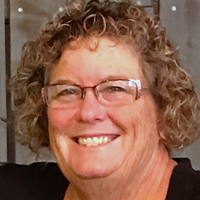They shall build up the ancient ruins;
they shall raise up the former devastations;
they shall repair the ruined cities
the devastations of many generations.
— Isaiah 61:4 (English Standard Version)
Jefte Villalta’s sorrow deepened with every smoke-choking breath. There was little he could do as ash rained down from two gargantuan fires, one 20 miles to the northeast, the other 20 miles west of the Cru® Inner City headquarters, which has served Los Angeles’ southside communities since 1989. Villalta became director of the LA Inner City team two years ago.
A forecast of Santa Anas, sometimes called devil winds, instantly instills an unsettledness in residents who know it frequently gives rise to a phenomenon known as fire weather, a threat you can feel on your skin. Such was the case on Jan. 7 when fire agencies across Southern California were put on high alert — with good reason. In a matter of hours, the massive Palisades and Eaton fires annihilated homes, schools, churches and businesses. Blocks and blocks of neighborhoods were razed to rubble.
By the time the flames finished their punishing assault, the damage was numbing. The Eaton fire alone raged through the unincorporated community of Altadena in Los Angeles County, killing 19 people and destroying 9,000 buildings, two-thirds of those homes. The total loss for both fires is estimated as high as $164 billion.
The impact and grief spilled far beyond the fire maps, with 9.5 million people residing inside the boundaries of Los Angeles County, a population greater than nine U.S. states — Vermont, Alaska, North Dakota, South Dakota, Delaware, Rhode Island, Montana, Maine and New Hampshire — combined.
“We walked the streets and heard the stories and prayed with the people and cried with those who were crying.”
Villalta could clearly see the need, especially in Altadena, where people of color found refuge when pre-70s banking policies of redlining restricted them from homeownership in surrounding cities. In Altadena, they found a welcoming community where they flourished. But now, many of those same families are dealing with the stark reality of skyrocketing insurance premiums that left many either uninsured or underinsured.
Villalta knew his team could provide vital assistance —physical and spiritual — but it didn’t pan out on paper.
“It was kind of weird to be like, ‘OK God, you want us to do something, but we have nothing. We can't give anything,” he said. “God really started putting it in my heart, ‘just wait, because right now everyone's helping. Right now, everyone's giving all this stuff, but at some point, people are gonna back off, and that's where you guys could come in.’ So, we're like, ‘OK, we're gonna wait.’”
Laying the Groundwork
In the meantime, he sought guidance within Inner City, including from Glen Kleinknecht, who has invested years helping develop expansion cities for the ministry. Villalta also initiated conversations with church leaders in Pasadena, a more-resourced neighborhood flanking Altadena to the south. Although the fire encroached into Pasadena, the damage was much less severe, making it an ideal partner for disaster relief.
“We started this conversation almost on a weekly basis, going down there, even our team went, and prayed and did a prayer walk just to be sensitive to what was happening,” Villalta said.
Eventually, he connected with Unto, the humanitarian ministry of Cru, which for 30 years has provided three essential programs to relieve suffering across the globe: food and agriculture, clean water, and critical aid. Representatives from Unto came to Los Angeles to meet with Villalta and his team.
“We walked the streets and heard the stories and prayed with the people and cried with those who were crying,” Villalta said. “We visited areas that were completely burned down, and saw homes that once were the pride and joy of a family, and now they were just dust.”
“We listen well, we hear stories well, so let's do that.”
This summer, months after the January firestorm, Unto and the LA team were able to distribute $60,000 to a network that included a job center, clergy coalition, and several pastors, including one who lost his home, as did 43 of his church members.
When approaching potential partners, Villalta said they asked them what help was needed.
“We're here to support, and we want to support long term. What can we do?” Villalta said.
The local ministries were grateful — and taken aback, saying, “Everyone comes here and tells us what they could do for us. Nobody's asking us what we need. You guys asked us what we needed.”
Although financial support and in-kind donations came from a cross-section of sources, Villalta said the Inner City team is the only one in that area offering evangelistic outreach and discipleship training to the local churches as part of the disaster relief.
“They actually respected what we were bringing to the table,” he said, adding that the Pasadena Job Center, a secular networking agency, has asked one of Inner City’s partner churches to produce a monthly video it can use to approach such topics as why God cares about situations like the fire relief.
Toxic Cleanup
Among the items provided through Inner City and its partners were 10,000 specialized debris clean-up kits to protect “second responders,” those who were handling the toxic rubble once the emergency work of first responders is completed.
“We found people that were cleaning up debris with no equipment, because insurance companies were just sending them out that way,” Villalta said. “People came back to live in those apartments with no electricity, with all the walls affected with smoke. Because the place didn't burn down, they felt that it was at least safe enough for them because they had nowhere to go. They had no other place to move into; there was no place that was in town that would be able to take them. It was heartbreaking to see that.”
Many of the residents resisted in-unit visits for fear it would lead to eviction or longer-term concerns about rent increases or lease terminations. The Inner City team was able to bridge that barrier after making contact with a resident who could vouch for the team’s integrity.
“People were so afraid of being taken advantage of or being kicked out of the apartment building,” he said. “They were too afraid to go out and fight for themselves or even ask for requests for any type of help.”
In moments where they could provide one-on-one comfort, the LA team often referenced Isaiah 61:4 and the promise of rebuilding the ruins.
“Our message was God could come and do great things in healing your heart and healing the story, and then make you a city light in the same place that you saw so much pain and so much suffering,” he said.
While the physical assistance was important, Villalta said the relief work routinely confirmed to his team that their ears were as important as their hands.
“The main lesson is, in listening to God, to not let the pressure of what others are doing define what God is calling us to do specifically,” he said. “In our particular case, we here in Cru Inner City LA, we have a gift to listen. We're good at listening to our partners and listening to our pastors.”
“We were not too late. We were right on time to provide what we are good at.”
As a result, the LA team developed the Memories Project, in which they video memories of people who lost everything in the fire. The team has particularly focused on older residents who lost every tangible memento from their past. The team asks simple questions, such as describing their wedding day. What were you and your spouse wearing?
“This is a memory that can still stay alive,” he said. “Those things were birthed from saying, ‘OK, what do we do good, right?’ We listen well, we hear stories well, so let's do that.”
The hours invested in Altadena have provided invaluable connections and resources as the Los Angeles team works to expand its success — and gospel reach — well beyond south LA.
“What's beautiful is that in the years to come, we're going to be able to focus in that part of town and (we’ll) have close to 70 churches in the area, who we could potentially train in evangelism for the years to come,” Villalta said. “As the city is being rebuilt, there's going to be opportunities to be able to rebuild the churches there with an evangelistic mindset for the future.”
Villalta has marveled at how God orchestrated it all, in spite of a human blueprint that said there was no way.
“When we got there, we thought, ‘We're too late,’” he said. “We were not too late. We were right on time to provide what we are good at. I think that's what God was waiting for, to give us that opportunity to be able to do what is our passion.”
Photo at top by Facsenator / Wikipedia
• • •
 Lori Arnold serves as the senior writer for Cru's inner-city ministry.
Lori Arnold serves as the senior writer for Cru's inner-city ministry.








 Lori Arnold serves as the senior writer for Cru's inner-city ministry.
Lori Arnold serves as the senior writer for Cru's inner-city ministry.
